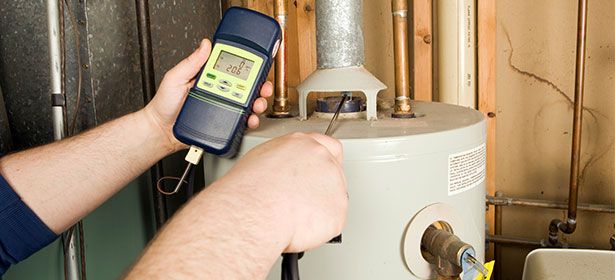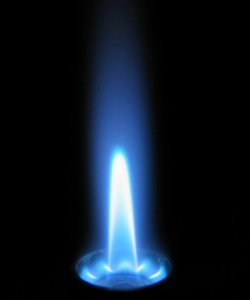When your boiler is on the blink, you’d think that it would be obvious. But it isn’t always that easy to tell when it’s time to trade it in, and get a new boiler (or try to fix it).
And to make matters worse, boiler problems can often be costly and frustrating; after all, nobody wants to come home to a freezing home.
Here are the top four warning signs you need to look for:
1. Your boiler smells ‘funny’
It might not be the first thing you think of – but it should be. Boilers should never give off any sort of smell, so if you notice something then call in a heating service engineer or professional right away.
If you suspect a carbon monoxide leak, then evacuate immediately. Sadly, carbon monoxide does not emit a smell, but often other ’causes’ of carbon monoxide leaks do. Often this is because a small carbon monoxide leak is causing the boiler to not burn clearly, which creates separate smells.
Carbon monoxide poisoning can be fatal if not spotted early. As the gas is odourless, it’s often impossible to know if you have a leak. Nowadays a lot of fire alarms have a built-in carbon monoxide (CO) detector. Be sure to check yours does, too.
What do I do if I suspect a Carbon Monoxide leak?
The first thing you should do is evacuate your property, and then call the Gas Emergency line on 0800 111999. If you are feeling faint then you should go to the doctors or be seen by a paramedic. And don’t forget Rex as well – all your pets need to be checked over by a vet if they were exposed to Carbon Monoxide too.
And remember: although there can be some signs and smells of a Carbon Monoxide leak, it is always best to install a CO alarm or monitor.
2. Your energy bills are higher than before
Although seasonal weather can most definitely affect your energy usage, it’s important to be aware of how much your bills typically cost. Higher than expected energy bills can often be a symptom of an inefficient boiler. Generally speaking, the older the boiler, the less energy efficient it will be (and the more it will cost to run).
The Energy Saving Trust suggests that if the average household upgrades from a G-rated boiler to an A+ rated one, they will save £320 every year in energy bills. That’s quite some saving!
If your boiler is losing pressure, then that may be a different issue.
How do I check my boiler’s energy rating?
If you aren’t sure what energy classification your boiler has, then dig out the manual or Google the model number. It is a legal requirement to display the energy efficient rating when you purchase a boiler now.
If you’re trying to pick an energy efficient new boiler, then a modern condensing system is generally best. Read our guide here on understanding the different types of boilers.

3. Your boiler appears to be leaking
If you’ve spotted any residue or wetness around the bottom of, or underneath, your boiler then it is likely to be leaking.
A boiler leak may not seem too serious but it can quickly lead to corrosion and interior water damage in your home.
You probably aren’t qualified to diagnose the issue yourself, so make sure to call a qualified heating engineer ASAP. They will assess the situation and provide you with a resolution. If you don’t wish to pay outright and would rather spread the monthly cost of boiler cover, then try our boiler cover and insurance comparison service.
What else should I look for?
This list isn’t exhaustive, but there are other signs of boiler wear besides leaking. Make sure to keep your eyes peeled.
These are:
- Yellow flame. If your boiler is burning a yellow flame instead of a blue one, then it could be under-performing.
- Excessive condensation around the windows.
- Dirty burning and Soot stains around the boiler, walls
- Your boiler’s pilot light frequently goes out. Only old boilers will have one of these – they should actually be alight 24/7!

The best advice, if in doubt, is switch off the boiler at the mains and contact a heating engineer ASAP. You can use the Which Trusted Traders service to find a local, recommended heating engineer.
4. Radiators not getting hot
Although this could be a number of causes, perhaps the most overlooked cause of radiator heat issues is the boiler not working correctly.
If your radiators are taking a long time to heat up, particularly at the top, then this could be sludge build-up. This is not related to your boiler. However, dirty water circulating through your boiler will eventually damage it, so make sure to have your system drained and cleaned if needed.
Ultimately, nobody wants to sit in a cold home, and to make matters worse: you’re probably paying more than you would, if your boiler was efficient. So not only are you colder than you need to be, but you’re also spending more money on heating!
Naturally, buying a boiler fills people with dread. The average boiler cost in the UK is now over £1300. If the thought of spending that kind of money fills you with dread, you are not alone.
A heating engineer will know how to do this, and it may even be covered by boiler insurance policies. Most boiler cover policies include a breakdown cover clause. Often these extend further – for example, British Gas HomeCare Four also covers electrical issues, gas leaks, and much more. Make sure to compare boiler cover here at CompareBoilerCover.co.uk before purchasing a boiler cover policy.
FAQs about Boiler Warning Signs
I think my boiler is making a screeching noise. What do I do?
It could be what’s called ‘kettling’. This is when a build-up of sludge isn’t cleared, and the hissing or whirring noise is the water trying to pass through the pipes, around all the sludge and gunk.
How do I check my boiler’s energy rating?
If you aren’t sure what energy classification your boiler has, then dig out the manual or Google the model number. It is a legal requirement to display the energy efficient rating when you purchase a boiler now.

4 replies on “Four Warning Signs You Need a New Boiler”
[…] your boiler is showing signs that it might be giving up, then it’s time to consider your next one. Here we will tell you everything you need to know […]
[…] If any of the following apply to you, then consider calling a boiler expert to make sure that your boiler and heating system are working to their full potential. This is covered more in our article Four Warning Signs you need new Boiler. […]
[…] You may be able to get a free boiler, read our article on the warning signs that you need a new boiler. […]
[…] ← 5 Common Thermostat Mistakes → Four Warning Signs You Need a New Boiler […]